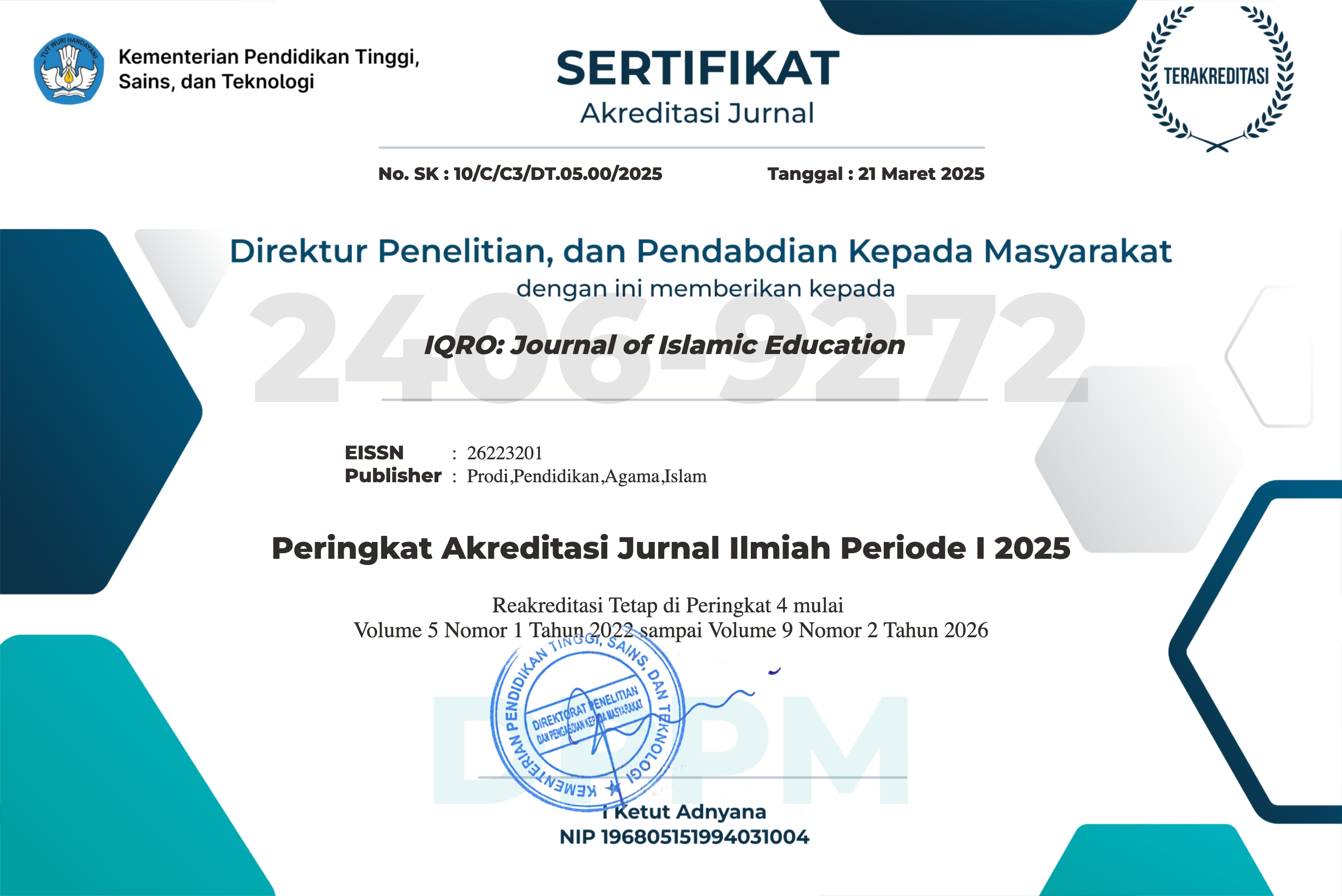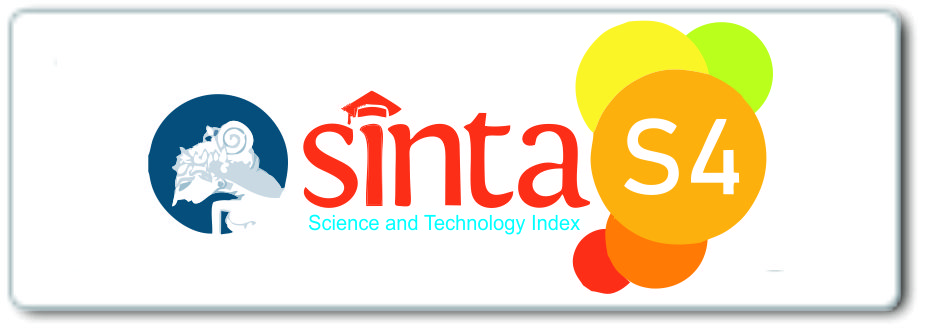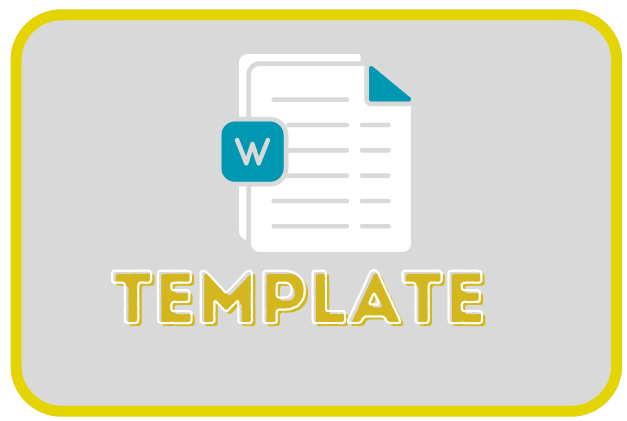Critical Discourse Analysis on Portraying the CODE-PLAN Model to Create Lesson Plan
DOI:
https://doi.org/10.24256/iqro.v7i2.5286Keywords:
CODE-PLAN Model, Cognitive Skills, Lesson PlanAbstract
This library research critically examined the specific cognitive skills teachers need to create effective lesson plans using the CODE-PLAN model. The study explored how the dimensions of content, social context, and time interact to influence lesson planning and identified six key strands such as content transformation, task creation, adaptation to learning disposition, clarity of learning objectives, unit contextualization, and phasing. The researcher used a qualitative descriptive-analytical method and content analysis to analyze the data. The study aimed to highlight the cognitive demands essential for effective lesson planning. The findings suggest that applying the CODE-PLAN model could enhance teachers’ instructional practices, thereby improving educational quality and student learning outcomes. However, challenges in teacher training and resource limitations need to be addressed for successful implementation. Moreover, the research contributes to the field by providing a framework for understanding and improving the cognitive demands in lesson planning, potentially guiding curriculum design and teacher training programs.
Keywords: CODE-PLAN Model, Cognitive Skills, Lesson Plan
References
Blömeke, Sigrid, Gustafsson, Jan-Eric.,and Shavelson, Richard J. “Beyond Dichotomies: Competence Viewed As A Continuum.” Zeitschrift fur Psychologie / Journal of Psychology 223, No. 1 (2015): 3-13, https://doi.org/10.1027/2151-2604/a000194.
Borsboom, Denny., Mellenbergh, Gideon J., and Heerden, van Jaap. “The Concept of Validity.” Psychological Review, 111, No. 4 (2004). 1061–1071. https://doi.org/10.1037/0033-295X.111.4.1061.
Fairclough. Language and Power. New York: Longman, 1989, 17.
Fitriani and Budiarta. “An Analysis of Teacher’s Lesson Plan For Learning English Through Google Classroom in Junior High School.” Jurnal Pendidikan Bahasa Inggris Undiksha 9, No. 1 (2021): 98, https://doi.org/10.23887/jpbi.v9i1.36343.
Gerriero, Sonia. Pedagogical Knowledge and the Changing Nature of the Teaching Profession. Paris: OECD Publishing, 2017, 40, http://dx.doi.org/10.1787/9789264270695-en.
González, María José, Gómez, Pedro, and Pinzón, Andrés. “Characterising Lesson Planning: A Case Study With Mathematics Teachers,” Teaching Education 31, No. 3 (September 29, 2018): 260-278, https://doi.org/10.1080/10476210.2018.1539071.
Harmer, Jeremy. “The Practice of English Language Teaching.” Harlow: Longman, 2007.
Kaiser, Gabriele. and König, Johannes. “Competence Measurement in (Mathematics) Teacher Education and Beyond: Implications for Policy.” High Educ Policy 32, 597–615 (2019). https://doi.org/10.1057/s41307-019-00139.
Kang, Hosun. “Pre-service Teachers’ Learning to Plan Intellectually Challenging Tasks.” Journal of Teacher Education 68, No.1 (2017), 55–68, https://doi.org/10.1177/0022487116676313.
Knoef, Miriam. J, Visscher, Hanno van Keulen, and Gijsel, Martine A. R. “Integrated Language and Science & Technology Instruction: A Cognitive Task Analysis of the Required Teacher Expertise A Cognitive Task Analysis of the Required Teacher Expertise.” Journal of Science Teacher Education: 3, https://doi.org/10.1080/1046560X.2024.2361980.
König, Johannes, Bremerich-Vos, Albert, Buchholtz, Christiane, Fladung, Ilka and Glutsch, Nina, “Pre–Service Teachers’ Generic and Subject-Specific Lesson-Planning Skills: On Learning Adaptive Teaching During Initial Teacher Education,” European Journal of Teacher Education 43, No.2 (2020): 131-150, https://doi.org/10.1080/02619768.2019.1679115.
Konig, Johannes, Krepf, M., Bremerich-Vos, A., & Buchholtz, C, “Meeting cognitive demands of lesson planning: Introducing the code-plan model to describe and analyze teachers’ planning competence.” Teacher Educator 56. No. 4 2021: 466-478, https://doi.org/10.1080/08878730.2021.1938324. Matthew B. Miles, A. Michael Huberman, and Jhonny Saldana, “Qualitative Data Analysis A Methods Sourcebook” (United States of America, 2014).
Krepf, Matthias, and König, Johannes. “Structuring The Lesson: An Empirical Investigation Of Pre-Service Teacher Decision-making during The Planning Of A Demonstration Lesson.” Journal of Education for Teaching 49, No. 5: 922, https://doi.org/10.1080/02607476.2022.2151877.
Maulana, Ridwan, Helms-Lorenz, Michelle, and Van de Grift, W. 2016. “Validating a Model of Effective Teaching Behaviour of Pre-Service Teachers.” Teachers and Teaching 23 (4): 471–93. doi:10.1080/13540602.2016.1211102.
Muh.Yamin, S. Pd. , M. Pd., & Muwahidah Nurhasanah, M. Pd. I. (2021). 17. MEDIA PEMBELAJARAN (M. Pd. Luluk Firdausiyah, Ed.; Cetakan 1, Vol. 1). YAYASAN HAMJAH DIHA.
Mutton, Trevor, Hagger, Hazel, and Burn, Katharine. “Learning To Plan, Planning To Learn: The Developing Expertise Of Beginning Teachers,” Teachers and Teaching 17, No. 4 (2011): 399-416, https://doi.org/10.1080/13540602.2011.580516.
Peters-Burton Erine, Jacob Rich, Peter, Kitsantas, Anastasia, Laclede, Laura, and Stehle, Stephani, M. “High School Science Teacher Use of Planning Tools to Integrate Computational Thinking,” Journal of Science Teacher Education 33, No. 6 (2022): 598-620, https://doi.org/10.1080/1046560X.2021.1970088.
Richard, Jack C., and Bohlke, D., (2011). “Creating effective language lessons.” United States of America: Cambridge University Press 2011.
Shulman, Lee, S. “Knowledge And Teaching: Foundations Of The New Reform” Harvard Educationa Review 57, No. 1 (1987). 1-23, http://dx.doi.org/10.17763/haer.57.1.j463w79r56455411.
Stender, Anita, Brückmann, Maja, and Neumann, Knut. “Transformation of Topic-Specific Professional Knowledge Into Personal Pedagogical Content Knowledge Through Lesson Planning.” International Journal of Science Education 39, No. 12 (2017), 1690–1714, https://doi.org/10.1080/09500693.2017.1351645.
Suparlan, “Module: English Lesson Plan.” Jakarta: Tamma University, 2010.
Westerman, Johan. “Post-Educational Motivation to Learn Cognitive Skills in Three European Labour Markets. A Comparative Analysis of The PIAAC,” Journal of Education and Work 34, No.4 (2021): 459-471, https://doi.org/10.1080/13639080.2021.1953693.
Yamin, M. (2022). Blended Learning Model Pembelajaran Pasca Pandemi. Sustainable Jurnal Kajian Mutu Pendidikan, 5(2), 285-289.






 This is an open access article under the
This is an open access article under the 